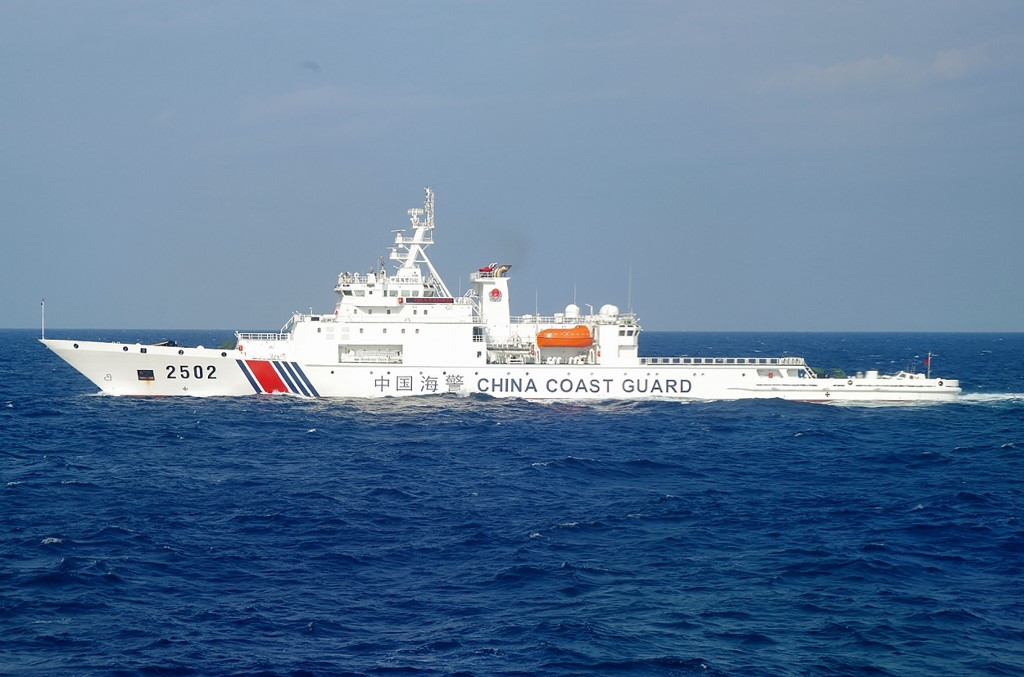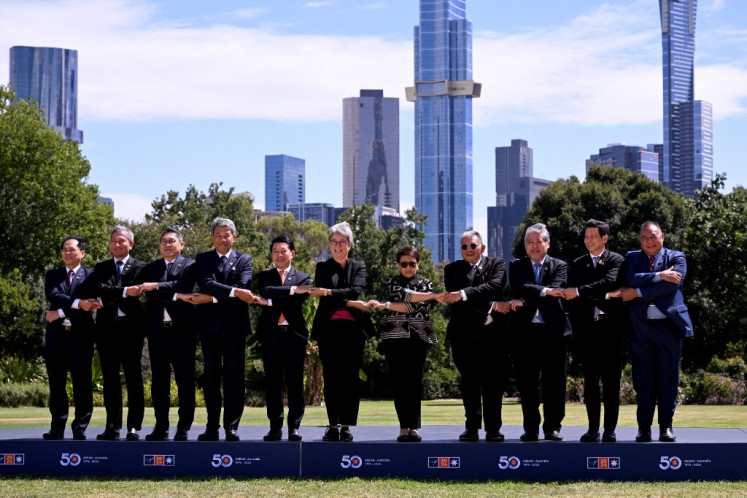China implements revised law to boost power of maritime authorities
As Beijing claims that the Japanese-administered Senkaku Islands in the East China Sea are part of its territory, the amended Maritime Traffic Safety Law could target Japanese vessels navigating around the uninhabited islets, called Diaoyu in China.
Change Size
 China's Haijing 2502 patrol boat sails into waters near the disputed Senkaku islands, in the East China Sea on November 6, 2016. Japan protested to China after four Chinese vessels entered the waters surrounding the islets, called the Senkaku in Japan and the Diaoyu in China, around 10:00 am local time (0100 GMT), according to Japan Coast Guard. (Agence France Presse/Japan Coast Guard)
China's Haijing 2502 patrol boat sails into waters near the disputed Senkaku islands, in the East China Sea on November 6, 2016. Japan protested to China after four Chinese vessels entered the waters surrounding the islets, called the Senkaku in Japan and the Diaoyu in China, around 10:00 am local time (0100 GMT), according to Japan Coast Guard. (Agence France Presse/Japan Coast Guard)
C
hina on Wednesday implemented a revised law to strengthen the power of its maritime safety authorities, amid concern that the move could escalate tensions with other countries, including Japan, in nearby waters.
As Beijing claims that the Japanese-administered Senkaku Islands in the East China Sea are part of its territory, the amended Maritime Traffic Safety Law could target Japanese vessels navigating around the uninhabited islets, called Diaoyu in China.
In February, China also enforced a controversial law that allows its coast guard to use weapons when foreign ships involved in illegal activities in Chinese-claimed waters do not obey orders, making Sino-Japanese relations more fragile over maritime security.
The latest revision was enacted in late April at the Standing Committee of the National People's Congress, China's top legislative body.
The revised law enables China's maritime safety agency, which belongs to the transportation ministry, to order foreign vessels to leave what the nation claims as its territorial waters if it judges that their presence could threaten security.
The agency can also block foreign ships from entering the territorial waters if they are not seen as exercising the right of innocent passage under international law.
Read also: Japan requested US to amend neutrality over Senkakus in 1970s
Recently, the leadership of Chinese President Xi Jinping has adopted a hard-line posture in the South and East China seas as part of its goal of making the country a "maritime power."
China has frequently sent official vessels to waters around the Senkakus in an attempt to lay claim to them, while the United States and Japan have agreed that the islets fall under the scope of their bilateral security treaty.
Beijing argues that the islets are its "inherent territory."
Late last year, Foreign Minister Wang Yi said China will safeguard its sovereignty over them and justified its sending of official ships to the area, saying "unknown Japanese fishing vessels" entered the islets' waters.
In the early 2010s, the row over the Senkakus heated up between Beijing and Tokyo, especially after the Japanese government under Prime Minister Yoshihiko Noda brought them under state control in September 2012.
Beijing, meanwhile, has rapidly built artificial islands with military infrastructure in the South China Sea, claiming sovereignty over almost the entire area.
Read also: US, China trade barbs at UN over South China Sea
China has conflicting territorial claims with four of the 10 members that make up the Association of Southeast Asian Nations -- Brunei, Malaysia, the Philippines and Vietnam -- as well as Taiwan in the South China Sea.
US warships have carried out "freedom of navigation" operations there in an apparent bid to counter Chinese claims and actions in the sea, a strategic waterway through which a chunk of global trade passes.









